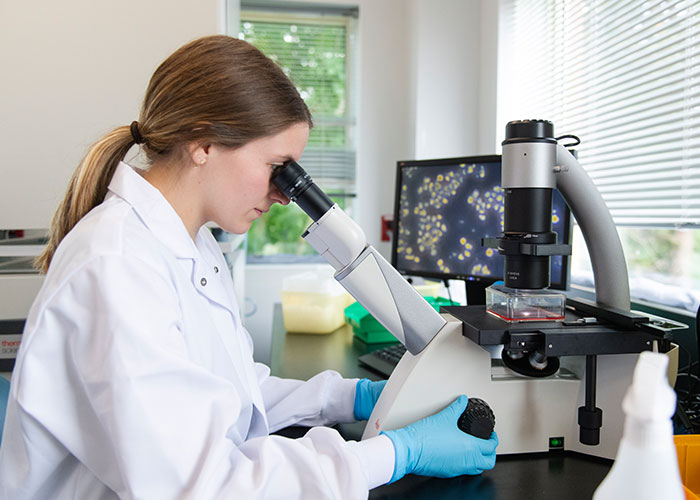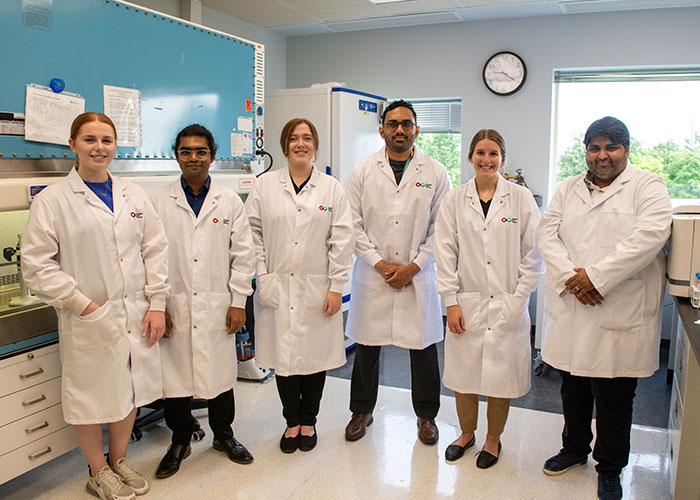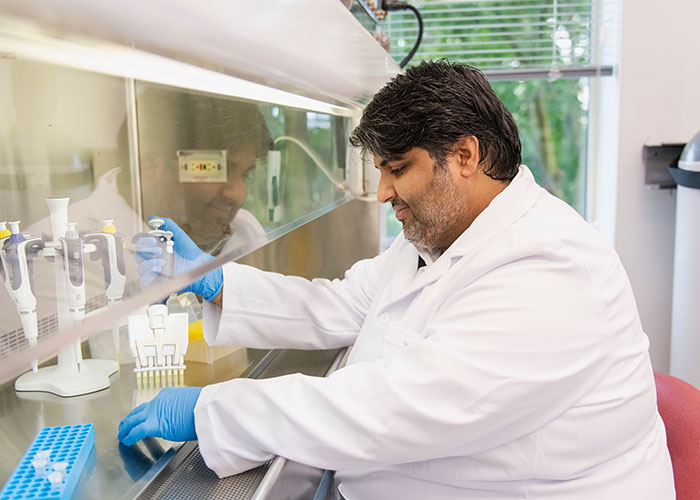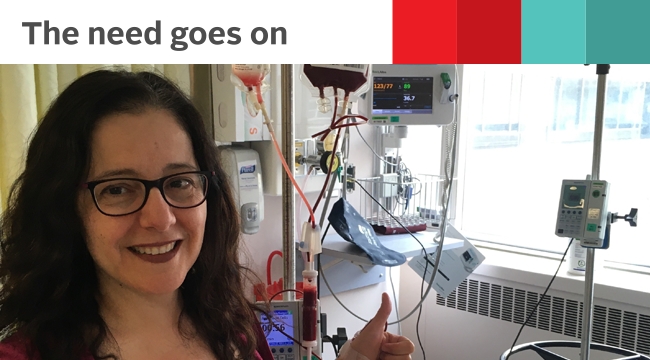Meet the Researcher: Dr. Harinad Maganti

His research into cell and gene engineering, could pave the way to new therapies for sickle cell disease and cancer.
When Dr. Harinad Maganti thinks about his research he considers it a bit like building a house.
“It all starts with one brick,” Dr. Maganti says. “We don't worry about the big picture. We try to build the best brick we can. We lay it the best way. As you lay the bricks properly, you'll be able to build a fantastic wall. Maybe it’s not me who will finish this wall, but I know someone will.”
That frame of mind is how he keeps himself and his team motivated as they attempt to create innovative therapies for some of medicine’s most pernicious problems, including cancer and sickle cell disease.
“The focus of my research is to use blood stem cells to create advanced cell therapies for patients with a multitude of diseases,” Dr. Maganti explains.
Blood stem cells are immature cells that can develop into any cell present in the bloodstream. They are produced by bone marrow, the spongy tissue in the centre of some bones, and are also found in cord blood — the blood left in the placenta and umbilical cord after a baby is born. Many parents donate cord blood for use in lifesaving stem cell transplants, but those who donate to Canadian Blood Services’ cord blood bank may also consent to the use of their donation for research (such as in cases where the quantity of stem cells is insufficient for transplant).
Dr. Maganti’s team is developing a new technology to engineer the stem cells so they can be used to treat several illnesses. Sickle cell disease is one of these because it’s an inherited condition which causes the red blood cells to be misshapen. The team is using gene editing, a method for adding, replacing, or removing sections to DNA, to attempt to correct these mutations within the patient’s blood stem cells. Those affected — about 6,000 people in Canada, and 250 million worldwide —may suffer severe pain and other serious health problems. Currently, few can be cured, and treatment may require regular blood transfusions.

Dr. Maganti hopes his lab’s work will lead to a treatment where the patient’s own blood stem cells can be extracted and the genetic mutation corrected; from there, they would be returned to the patient’s body, where they would develop into healthy blood cells. Such a therapy could substantially improve patients’ quality of life as well as reduce treatment costs.
These same methods also hold promise for treating cancer without chemotherapy.
“What's important to know is that Canadian Blood Services is the only non-for profit organization in Canada that works both at delivering safe blood and developing better blood products,” Dr. Maganti says. “I think this is very important because a lot of organizations either have researchers that don't have the end product or the ability to take it to the clinic, whereas we have specialists in each of these areas.”

Canadian Blood Services not only manages the blood system, but drives world-class innovation in blood transfusion, cellular therapy and transplantation. Through in-house expertise and a network of scientists, engineers and medical professionals at hospitals and universities around the country, cutting-edge research is conducted. In addition to paving the way for exciting new therapies, this research shapes our donation policies, better ensures patient safety, and contributes to a global body of knowledge aimed at improving lives.
“It was a no-brainer to work at Canadian Blood Services,” Dr. Maganti says. “I have the rare honour and privilege to work with all these wonderful scientists to collectively help Canada and the world be a safer and a better place. It's a privilege that comes with a lot of responsibility, but it's very exciting.”

While many bricks remain before the house is finished, Dr. Maganti and his team continue to build it piece by piece — knowing they also have a lot of essential support from outside the lab.
“I want to thank the wonderful donors who continue to provide their blood for research, especially through the cord blood program. These donations go towards research like mine which hopes to provide new curative therapies,” Dr. Maganti says.
Learn more about Canadian Blood Services cutting-edge research here.


